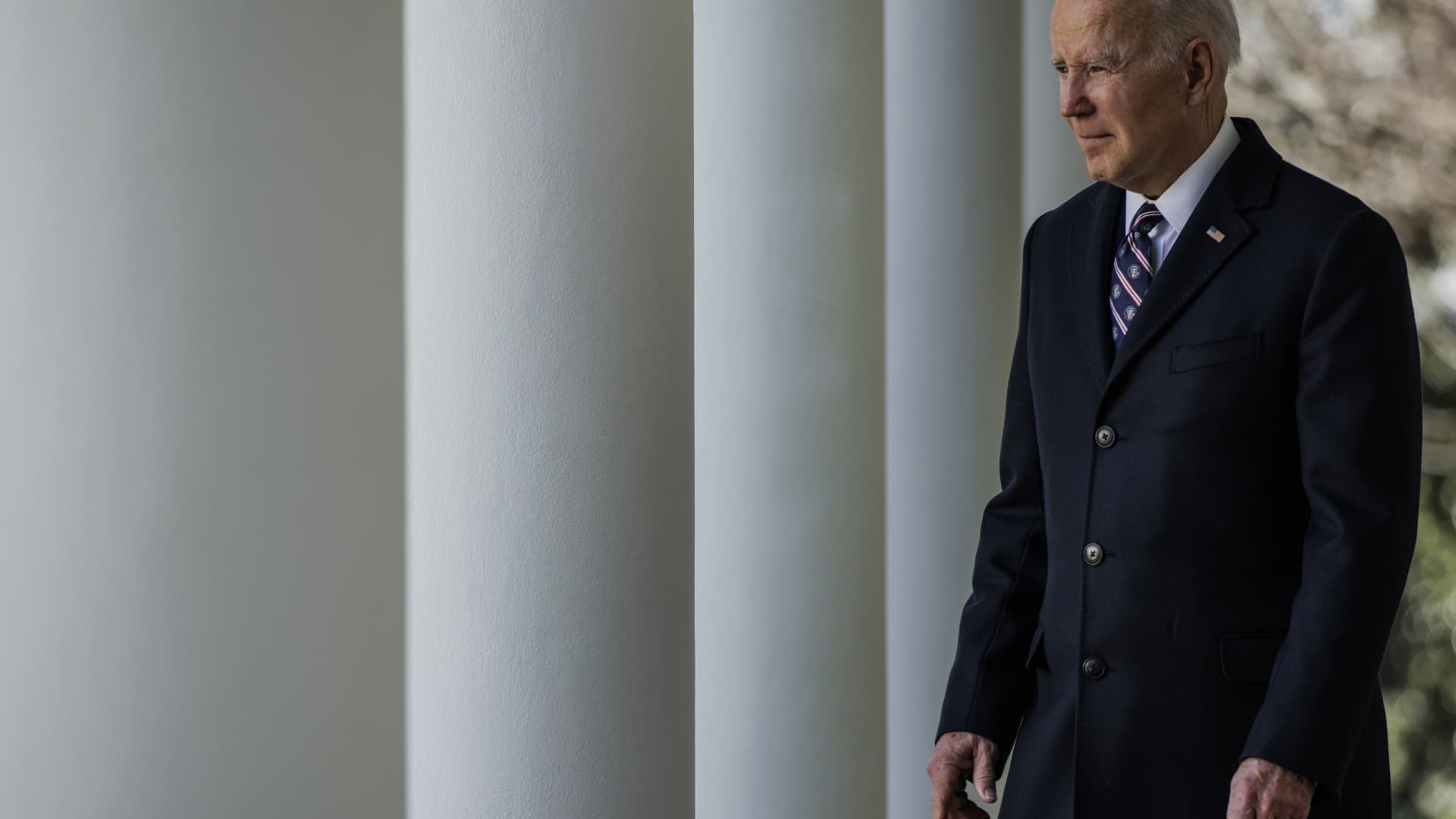President Joe Biden used his first veto to preserve a recent U.S. Department of Labor rule about investment choice in 401(k) and other workplace retirement plans.
The regulation, which took effect in January, applies to so-called “environmental, social and governance” funds.
These ESG investments — also known as sustainable or impact funds — come in a variety of flavors. Fund managers might funnel money into green-energy firms or companies with diverse corporate boards, for example.
More from Personal Finance:
Employers can use retirement perk as ‘stepping stone’ to 401(k)
How retirement savers can recover from recent market losses
When taking out a 401(k) loan actually ‘makes sense’
The Biden administration rule unwound a regulation issued by the Trump administration, which effectively barred employers from selecting ESG funds for their company 401(k) plans, experts said.
“The simplest way to describe [the Biden rule]: It took a Trump-era rule that said ‘You shall not have ESG’ and said ‘You may have ESG,'” said Will Hansen, chief government affairs officer at the American Retirement Association and executive director of the Plan Sponsor Council of America, a trade group for employers.
Biden veto preserves Labor Department’s ESG rule
Biden’s veto on Monday preserves his administration’s stance.
It doesn’t appear there are enough congressional votes to override the veto. Doing so would require a two-thirds vote in both the House and Senate.
ESG investing has grown more popular in recent years, occurring against the backdrop of growing political backlash, largely from Republican lawmakers who deride it as “woke” investing.
Investors poured about $69 billion into the funds in 2021, an annual record and about triple the amount in 2019, according to Morningstar. However, inflows fell significantly in 2022 — to $3.1 billion — in a year when stocks and bonds got pummeled and the broad U.S. fund universe saw the largest investor exodus on record, Morningstar reported.
Few 401(k) plans — about 5% — offer an ESG fund, according to PSCA survey data. Employers cited lack of regulatory clarity as one of the top reasons they haven’t offered one to workers.
The Trump-era Labor Department rule doesn’t explicitly call out or forbid ESG funds in 401(k) plans. But experts say the rule stymied uptake due to a general requirement that employers only use “pecuniary factors” when choosing 401(k) funds for workers.
Those factors restrict fund analysis to purely financial measures, such as fund fees, return and risk, experts said. Environmental, social and governance factors are generally “non-pecuniary,” however.
“The Trump rule made it so harsh, so difficult, that it put a cold blanket over E, S and G factors,” said Philip Chao, founder and chief investment officer of Experiential Wealth, based in Cabin John, Maryland. “Whereas this one doesn’t really talk about ESG factors being right or wrong.
“It returns power back to the fiduciary,” he added.
The [Biden] rule doesn’t force you to consider ESG. It says ‘you may’ do that.Philip Chaochief investment officer of Experiential Wealth
Employers serve as a fiduciary to their company 401(k) plans under the Employee Retirement Income Security Act of 1974.
Broadly, that fiduciary duty means they must operate the plan — including investment choice — solely in workers’ best interests. Under the Biden rule, employers must still consider ESG factors within the context of what is in investors’ best interests.
The Labor Department in November clarified that employers wouldn’t breach their legal duties by considering workers’ non-financial preferences in their final fund choice. Accommodating those preferences might encourage more plan participation and boost retirement security, for example, the agency said.
“The [Biden] rule doesn’t force you to consider ESG,” Chao said. “It says ‘you may’ do that.”
The veto may not change behavior much
The Republican-controlled House of Representatives voted to kill the rule on Feb. 28. It did so using the Congressional Review Act, a mechanism that gives lawmakers a chance to overturn any regulations issued near the end of a congressional session.
The Biden administration issued the final text of its investment rule in November, shortly before Republicans assumed control of the House.
The Senate voted to undo the Biden-era rule on March 1. Two Democrats — Jon Tester of Montana and Joe Manchin of West Virginia — joined the Republican opposition.
While the Biden administration’s rule is poised to remain intact, it’s unclear whether it will give employers peace of mind.
The issue has been a political whiplash, subject to whims of new presidential administrations, and employers remain afraid of getting sued for their investment choices against the backdrop of regulatory uncertainty, Hansen said.
“If anything, the CRA vote, the veto, made things more uncertain as to what they can do or should do,” Hansen said.
